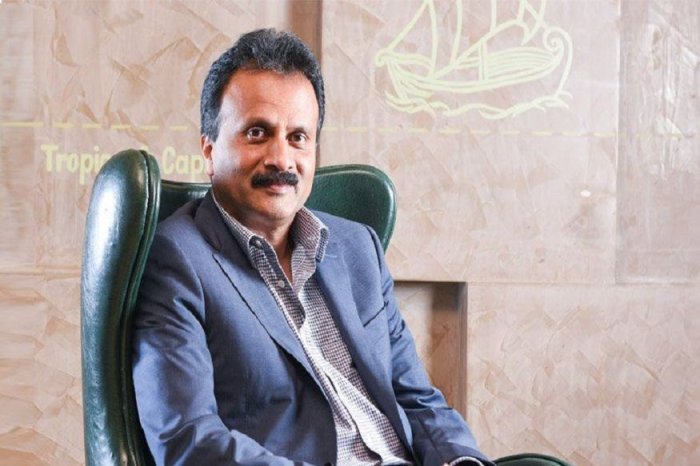Siddhartha’s Father is a Politician delves into the captivating tale of a young man’s quest for meaning beyond his father’s political sphere. The story explores the profound impact of a father’s political life on his son’s upbringing, worldview, and spiritual journey.
The narrative unfolds as Siddhartha navigates the complexities of his father’s political ambitions and his own personal values, leading to a profound transformation that transcends the realm of politics.
Siddhartha’s Father’s Political Influence

Siddhartha’s father, a high-ranking politician, exerted a significant influence on his son’s upbringing and worldview. The political environment in which Siddhartha grew up shaped his understanding of power, society, and his own place within it.
Father’s Political Beliefs and Connections
Siddhartha’s father was a staunch supporter of the caste system and the traditional values of his society. He believed in the importance of hierarchy and order, and he used his political connections to maintain his family’s high status.
Impact on Siddhartha’s Development
- Exposure to Political Elite:Siddhartha’s father’s position exposed him to the elite of society, giving him a privileged perspective on the workings of power and the machinations of politics.
- Internalization of Caste System:Siddhartha grew up with a deep understanding of the caste system and its implications for his own life. He accepted his position as a Brahmin and the privileges that came with it.
- Questioning of Social Norms:Despite his father’s traditional beliefs, Siddhartha began to question the social norms and hierarchies he observed. This questioning ultimately led him to renounce his privileged life and seek a deeper understanding of the world.
Siddhartha’s Rejection of His Father’s Path

Siddhartha’s decision to abandon his father’s home and pursue his own spiritual journey was driven by a profound dissatisfaction with his father’s political ambitions and lifestyle. These factors clashed with Siddhartha’s values and aspirations, ultimately leading him to seek a path that aligned with his own beliefs and desires.
Siddhartha’s Values and Aspirations
Siddhartha’s upbringing in a wealthy and privileged environment exposed him to the superficiality and materialism that often accompanied political life. He witnessed firsthand the pursuit of power and status, which he found unsatisfying and unfulfilling. Instead, Siddhartha yearned for a deeper meaning in life, one that transcended material possessions and social standing.
His Father’s Political Ambitions and Lifestyle
Siddhartha’s father, the Brahmin, was a successful politician who embodied the very values that Siddhartha rejected. He was driven by ambition and the desire for power, often at the expense of compassion and understanding. His lifestyle was opulent and extravagant, a stark contrast to the simplicity and asceticism that Siddhartha sought.
The Symbolic Significance of Siddhartha’s Departure
Siddhartha’s departure from his father’s world was a symbolic act that represented his rejection of the path laid out for him. By leaving behind his family and possessions, he embraced a life of uncertainty and exploration, seeking to discover his own truth and purpose.
Siddhartha’s Search for Meaning Beyond Politics: Siddhartha’s Father Is A Politician

Siddhartha’s journey began with a deep dissatisfaction with the materialistic and political life he inherited from his father. He embarked on a quest for a deeper meaning and purpose in life.
Asceticism and Sensuality
Siddhartha initially embraced asceticism, believing that denying oneself material pleasures would lead to spiritual enlightenment. However, this path proved unsustainable and only brought him physical and emotional suffering.
He then indulged in sensual pleasures, seeking fulfillment in worldly experiences. Yet, this path also proved unsatisfying, leaving him feeling empty and unfulfilled.
Meditation and Enlightenment, Siddhartha’s father is a politician
Finally, Siddhartha turned to meditation and self-reflection. He spent years practicing mindfulness and introspection, seeking to understand the nature of his own being and the world around him.
Through meditation, Siddhartha gained a profound understanding of the interconnectedness of all things. He realized that true happiness and fulfillment came not from external possessions or experiences but from within, from a deep connection to the universe.
Influence of His Father’s Background
Siddhartha’s father’s political background played a significant role in shaping his search for meaning beyond politics. Growing up in a wealthy and privileged household, Siddhartha witnessed firsthand the limitations and superficiality of material wealth and power.
This experience led him to question the value of the political path and to seek a more meaningful and fulfilling life that transcended the realm of politics.
Siddhartha’s Return and Reconciliation

After several years of wandering and spiritual exploration, Siddhartha returned to his father’s kingdom. His experiences had profoundly transformed him, and he was no longer the ambitious prince who had left home. Instead, he had become a humble seeker of truth and enlightenment.
Siddhartha’s Transformation
Siddhartha’s spiritual journey had taught him the futility of material wealth and political power. He had learned the importance of compassion, empathy, and living in harmony with nature. These experiences had also given him a new perspective on his father and the political life he had chosen.
Confronting His Father
Upon returning home, Siddhartha confronted his father about his past choices. He explained that he no longer believed in the pursuit of power and wealth. Instead, he advocated for a life of simplicity and service to others. His father, initially shocked and disappointed, gradually came to understand and respect his son’s transformation.
Living in the World
Despite his rejection of traditional political life, Siddhartha chose to remain in the world. He believed that he could make a difference by living a life that embodied his newfound values. He spent his time teaching others about the path to enlightenment and working to alleviate suffering.
FAQ Resource
Who is Siddhartha’s father?
Siddhartha’s father is a wealthy and influential Brahmin who serves as a high-ranking official in the kingdom.
Why does Siddhartha leave his father’s home?
Siddhartha leaves his father’s home in search of a deeper meaning in life, disillusioned by the material wealth and political ambitions that define his father’s world.
What is the significance of Siddhartha’s return to his father’s kingdom?
Siddhartha’s return to his father’s kingdom symbolizes his reconciliation with his past and his newfound understanding of the balance between spiritual growth and social responsibility.

